Published March 28, 2013 by EarthSpirit Community on EarthSpirit Voices
Written by Andras Corban Arthen
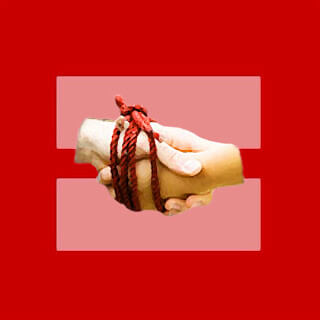 Exactly 40 years ago, in 1973, I performed my very first handfasting. I had originally learned about this traditional European marriage ceremony from my teachers, who had told me about handfastings (or “left-handed marriages,” as they were sometimes called) in Scotland, how they differed from Christian nuptials in both concept and form, and how they were still clandestinely practiced by some in Gaelic-speaking communities in the Highlands. And I had recently attended two such ceremonies, the religious weddings of pagan friends who subsequently legalized their marriages before a justice of the peace. The possibility that I might be called upon to officiate a handfasting any time soon, however, had not even crossed my mind.
Exactly 40 years ago, in 1973, I performed my very first handfasting. I had originally learned about this traditional European marriage ceremony from my teachers, who had told me about handfastings (or “left-handed marriages,” as they were sometimes called) in Scotland, how they differed from Christian nuptials in both concept and form, and how they were still clandestinely practiced by some in Gaelic-speaking communities in the Highlands. And I had recently attended two such ceremonies, the religious weddings of pagan friends who subsequently legalized their marriages before a justice of the peace. The possibility that I might be called upon to officiate a handfasting any time soon, however, had not even crossed my mind.
Ginny was a friend from work. She had been assigned to show me around the library on my first day there, and we had taken an immediate liking to each other. We were about the same age, had a very similar sense of humor, and quickly discovered that we shared the same political views about some of the important causes of the day – the Civil Rights movement, Women’s Liberation, Gay Liberation, and, of course, the Vietnam War. And, certainly not least, we were both diehard Red Sox fans.
Ginny was very blunt-spoken, and readily used four-letter words, a habit for which she had been reprimanded by her boss a few times. There was something very “tomboyish” about her, and I remember her telling me that one of the reasons she had applied for her job was that she wouldn’t have to wear a dress to work every day.
We started having lunch together frequently, and once in a while would go for a couple of beers after work. As we became closer, I eventually felt enough trust to confide in her about my being pagan; she thought it was odd, but interesting, and the subject would occasionally come up in our conversations.
One day, as we got together for drinks after work, we were joined by Betsy, Ginny’s roommate of several years. Ginny and Betsy had become friends in high school and attended the same college, where they originally began living together, and had continued doing so after graduation. It turned out that Ginny had told her roommate about my paganism, and Betsy had become very interested and wanted to meet me to talk about it.
Betsy and I hit it off as quickly as Ginny and I had, and we enjoyed a very pleasant but brief conversation because of time constraints. Ginny suggested that I have dinner with them at their place the following week, so we could talk some more; she mentioned that I’d be in for a treat, since Betsy was a wonderful cook.
That certainly proved to be the case, and as we talked about paganism after dinner in their tidy, plant-filled North Cambridge apartment, the two of them sat on the sofa opposite me. At some point, Ginny matter-of-factly reached over and pulled Betsy close to her, and we continued talking as the two of them snuggled on the couch. A little later, during a lull in the conversation, they casually kissed.
While that might not raise too many eyebrows nowadays, back then it was a very different story – people of the same sex simply didn’t engage in open displays of romantic affection toward each other. At that point in my life, the only times I had ever seen two women kiss on the lips were in a couple of European art films, but never in the flesh. I imagine, in retrospect, that if I had watched two women I didn’t know kissing like that in public, I might have felt somewhat uncomfortable; for all my avowed support of Gay Liberation in principle, I really didn’t have much actual experience with gay people.
But I knew Betsy and Ginny, and it was very obvious that they shared a very deep bond of love, friendship and affection, so their intimacies didn’t faze me at all – they felt natural, normal, right. If anything, I was glad that they were comfortable enough to be themselves around me.
They came out to me then, and we spent the rest of the evening talking about their lives, their love for and bond with each other, the struggles they’d had to face dealing with family and friends, and those they kept encountering with neighbors and at work.
And we talked about the pain – the pain of rejection and marginalization, of not being accepted for who they were; the pain caused by prejudice, by discrimination, by not being able to marry and live normal lives like most people; the pain of having to deny and hide their beautiful love every day of their lives. Tears flowed, we held each other, and from that moment became a lot closer; over time, I came to experience even more the depth of their love for one another, the strength of their commitment.
Months later, Ginny and Betsy told me that they had decided to get married. They knew there was no way they could legally do so, but they wanted, at the very least, to have some sort of unofficial ceremony, some spiritual affirmation and blessing of their relationship. They approached the minister of one of their family’s churches, but he turned them down. Over the next few months they tried churches of other denominations, only to meet with similar results.
They eventually pinned their hopes on the minister of a local Unitarian-Universalist congregation, someone they’d met at a friend’s wedding; they suspected he was gay, and felt that he, of all people, might be willing to marry them. He turned out, in fact, to be very sympathetic, but also apologetic – he wished he could perform the ceremony, he’d told them, but he was too afraid of losing his job if word ever got out. They were heartbroken.
Then, one day, Betsy showed up at my library at the time I usually went on coffee break, and asked if she could talk to me. She had just remembered my telling her about the pagan handfastings I’d attended, and a light bulb had gone off in her head. Could I – would I – perform a handfasting for them? She took me completely by surprise: the thought had not even occurred to me, as it obviously hadn’t to them until that moment.
After regaining my composure, I had to think a bit – I was just in my early twenties, and had only been on my path for four years, so what she was asking was a bit daunting. I finally told her that I could not remember anything in all my training that raised objections to the marriage of two people who clearly were in love and wanted to ceremonialize their commitment to each other.
And so it was that on a gloriously sunny but chilly spring morning, a small group of us gathered in a secluded part of a large public park in Brookline, surrounded by pines, to celebrate the handfasting of my two friends. It was a bittersweet event: Ginny’s mother was there, as were two of Betsy’s sisters; the rest of their families had adamantly refused to attend. Just a few close friends completed the party, twelve to fifteen people altogether, but what we lacked in size, we more than made up for in spirit.
We blessed them with mead. We blessed them with rose petals. I took the multi-colored cord they had brought and wrapped it around their joined hands. They each tied a knot while saying their vows to one another, looking deeply into each other’s eyes, the smiles on their faces more radiant than the sun. I tied the third knot on behalf of their family and friends, and pronounced them handfasted in marriage.
As the rest of us offered them our good wishes for their life ahead, I remember hoping that, one day, they would be able to renew those vows in a ceremony that would finally legitimize the marriage which took place that day; not because some legal piece of paper would make their relationship any more meaningful or real, but simply because the love which they had for each other deserved to be untainted – in any way at all – from ever being considered second-class.
I lost track of my two friends over the years, but they have been very present in my mind lately, as the U.S. Supreme Court begins to hear arguments regarding two cases that could decide the future of same-sex marriage in this country. Let us hope that the justices will put aside political and religious ideology, and rule in favor of freedom and equality under the law.
The measure of freedom lies in the ability to make choices; and whom we decide to love and share the rest of our lives with, is one of the most important choices we can ever make. In a truly free society, everyone should be able to make that choice equally, with equal rights and responsibilities – whether we choose someone of a different race or religion, or of the same sex; or whether we choose to share our lives with one other person, or with several.
I am proud to live in Massachusetts, where same-sex marriages have been legal for almost a decade, the first state in the Union to take such a step. As I think of Ginny and Betsy, I can’t help but wonder if they stayed together living here throughout all these years.
I’d like to imagine that they did, and that they stood in line at the courthouse in 2004 to be among the first to take advantage of the changed law, to finally legalize their marriage. And I’d like to imagine them now, two older women sitting close to each other on the couch at their home, tightly clasping their ring-bedecked hands while gazing fondly at the thin, multicolored cord hanging over their front door, the cord that we bound together forty years ago.
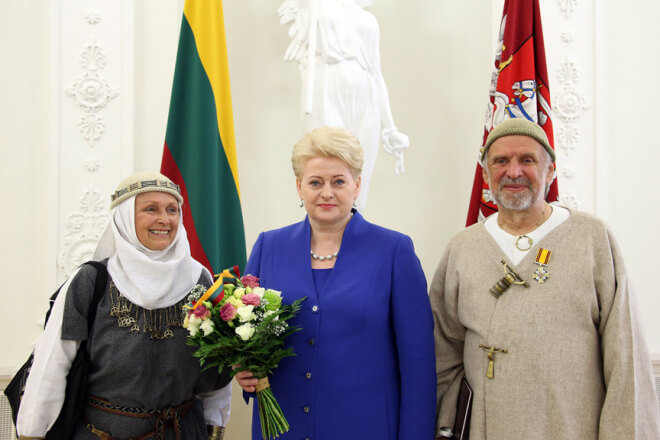
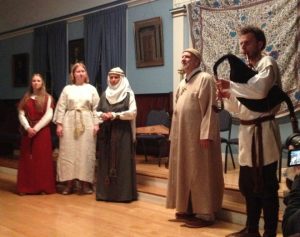
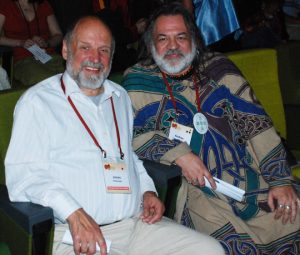
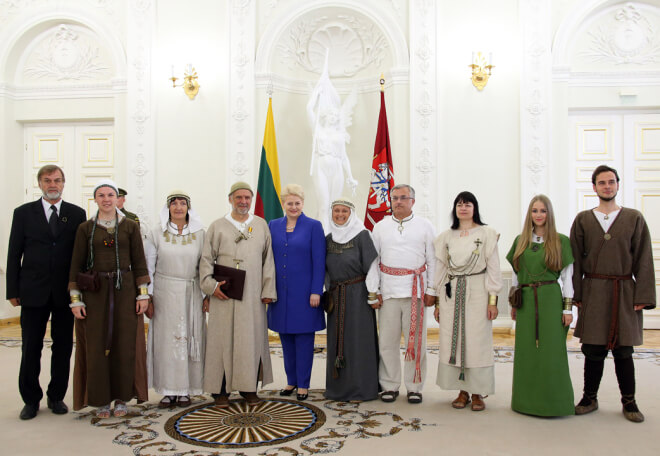

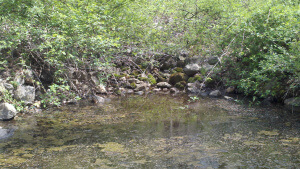 A year ago, as events in our lives unfolded, both logic and intuition told my husband and I that we needed to pick up and move our family from our home of 18 years, to somewhere new. We felt about as sure as we could be, that the move was right for us, that we were moving toward greater joy. But that didn’t make it easy for me to leave the land.
A year ago, as events in our lives unfolded, both logic and intuition told my husband and I that we needed to pick up and move our family from our home of 18 years, to somewhere new. We felt about as sure as we could be, that the move was right for us, that we were moving toward greater joy. But that didn’t make it easy for me to leave the land. Exactly 40 years ago, in 1973, I performed my very first handfasting. I had originally learned about this traditional European marriage ceremony from my teachers, who had told me about handfastings (or “left-handed marriages,” as they were sometimes called) in Scotland, how they differed from Christian nuptials in both concept and form, and how they were still clandestinely practiced by some in Gaelic-speaking communities in the Highlands. And I had recently attended two such ceremonies, the religious weddings of pagan friends who subsequently legalized their marriages before a justice of the peace. The possibility that I might be called upon to officiate a handfasting any time soon, however, had not even crossed my mind.
Exactly 40 years ago, in 1973, I performed my very first handfasting. I had originally learned about this traditional European marriage ceremony from my teachers, who had told me about handfastings (or “left-handed marriages,” as they were sometimes called) in Scotland, how they differed from Christian nuptials in both concept and form, and how they were still clandestinely practiced by some in Gaelic-speaking communities in the Highlands. And I had recently attended two such ceremonies, the religious weddings of pagan friends who subsequently legalized their marriages before a justice of the peace. The possibility that I might be called upon to officiate a handfasting any time soon, however, had not even crossed my mind.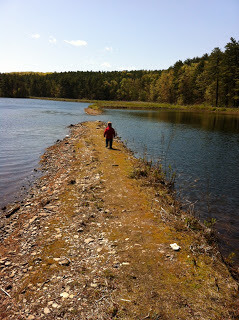 The world is (among other things) a cycle of give and take. We breathe out, the plants breathe in. The plants breathe out, we breathe in. Offering doesn’t have to be about sacrifice. It can be joyful gratitude for the bounty we are surrounded by, a connection with our prayers, a gift of service, and the passion we are compelled to express.
The world is (among other things) a cycle of give and take. We breathe out, the plants breathe in. The plants breathe out, we breathe in. Offering doesn’t have to be about sacrifice. It can be joyful gratitude for the bounty we are surrounded by, a connection with our prayers, a gift of service, and the passion we are compelled to express.